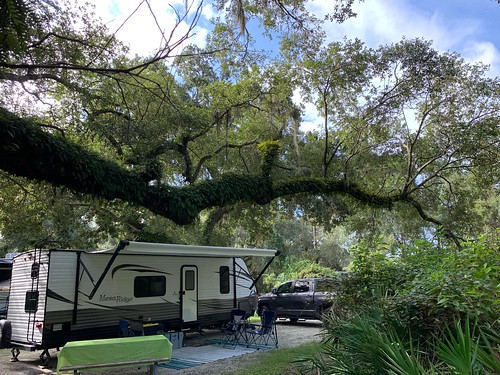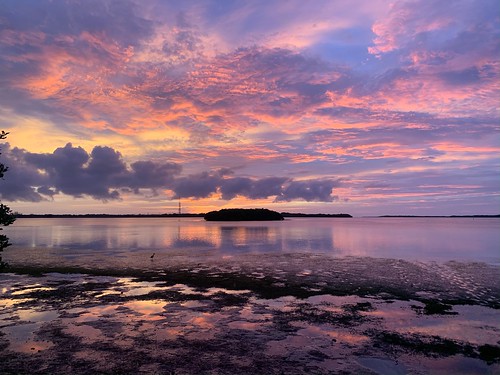Beginner Camper: Top 5 Tips

One of the things we enjoy doing as a family is camping. Today I’m sharing with you Dawn Carroll’s article Top 5 Tips for the Beginner Camper. I hope that you find this post as useful as I did. If you do please share it with your friends.

Beginner Camper: Top 5 Tips
It was June of 2020. Many radical decisions were made during that early pandemic season. When faced with isolation and quarantining, working from home, and all the other drama the pandemic brought, I, like many others, reassessed.
In our 50s, my husband and I had already been having the “when we retire” talks, but there was something about the pandemic that accelerated our planning and dreaming. We shifted from “when we retire” to “what about now?” We replaced the pie-in-the-sky retirement dream of traveling the country in a big Class A with an actual attainable goal of local, weekend camping now rather than later.
It was an experiment of sorts. All this talk of camping and traveling, but would we really enjoy it as a lifestyle?
I started researching, watched tons of YouTube videos, and joined lots of Facebook groups. I quickly learned the downsides of camping and campers, the makes and models to look for or avoid, and narrowed down what I was looking for.
We started our search with a small list of requirements.
• Must be able to pull with the current pickup truck.
• Must fit in the side yard so we would not incur storage fees.
• Must not have a slide out as they add weight and break often.
• Must be used, as the depreciation is insane.
• Must have a north/south bed, as we didn’t want to crawl over each other getting in and out.
That may sound like a lot of “must haves,” but trust me, if you have never shopped for campers, you would be surprised at the number of options you have. From the big Class A buses, Class Cs, fifth wheels, toy haulers, and travel trailers, there are many choices available.
Thankfully, it didn’t take us long to find a barely used, entry-level model that more than met our needs at an affordable price. More than two years later, we just completed our 26th trip and could not love camping and my “Sweet Caroline the Camper” more.

Here are some tips I have learned along the way that may help before you jump in!
1. Determine how you will camp.
Early on, our starry-eyed camping dreams had me in a fully loaded Class A at the base of a mountain in Montana, fly-fishing in a scenic lake. However, the reality is that we plan to work for five to ten more years before we retire. Why would we invest big money in a behemoth that we would only use for short weekend trips?
Once we acknowledged our needs were different for a “starter” camper, everything became more manageable and, more importantly, attainable.
Another important factor to consider is what type of camping lifestyle you prefer. Are you a “camp in the woods in solitude” type, or is your dream to take your fully appointed mobile house to a resort? That’s important to figure out early in your decision-making. Personally, I’m a true-blue camper. I want to be immersed in nature. We spend most of our time outside. We cook and eat outside, don’t have a TV, and don’t mind being sweaty and fighting off bugs. That being said, let me clarify that I am not as hardcore as a tent camper. I require a bathroom with a shower, a real bed, and a/c. Those were non-negotiable.
2. Set a budget.
Once you start looking, you will be stunned at the number of options out there. Just like shopping for a car, “buyer beware.” Do your homework and identify your requirements before walking into a dealership or meeting with a private seller. A pre-set budget will help you avoid getting caught up in the moment.
You also need to account for all the “after purchase” expenses; for instance, a new mattress (trust me on this one), the tool kit, the griddle or grill, the generator, not to mention the décor, which is my favorite part. And let’s not forget the insurance and all the fun toys you may want to bring, like bikes and kayaks.
A last note. Although camping is more affordable than staying at a hotel, with most state parks averaging anywhere from $25-30 a night, gas and food costs should not be underestimated in your planning.
3. Know your role.
There’s a little joke in the camping world related to parking. “Sorry for what I said when we were backing the camper.” For us, we share responsibilities and enjoy working together to achieve the goal. We work well together, but it is a true test of our communication skills.
Early on, we determined that my strengths are in logistics—the trip planning, supplies, and all of the inside organization. My husband handles operations, including hookup, driving, backing, set-up, and mechanics. We both know the other’s routines and double-check each other, but our partnership and clear roles help us to be successful and less stressed out.

4. Be realistic.
Speaking of stress, I think it’s important to acknowledge that whether you are a tent camper, or have a travel trailer or RV, it’s a lot of work. The advance planning, including finding campsites and mapping routes, meal planning, packing, loading, set-up, and other fun things like weather and bugs, can be overwhelming. It’s easy to get discouraged when first starting out. You will make multiple lists, triple-check them, and still forget something. Be patient. You will quickly fall into a routine and realize you really don’t need nine changes of clothes and 15 meals for a three-day trip.
5. Disconnect and relax.
Well, if you made it this far and haven’t yet given up on your camping dream, hang in there. It’s all worth it!
There is nothing like getting your site all set up and in order, plopping into your chair facing the woods, and breathing deep. The peace that comes from being in nature is worth every sweaty moment of preparation and setup.
For us, we camp to disconnect from the world and reconnect with each other. In our daily lives, our energy is consumed with our jobs and family responsibilities. But at the campsite, it all fades into the background and the pace radically slows. We read, go for bike rides, play games, take naps, and engage in much campfire therapy. We slow roll the days, eat when we want to, look for birds, and have zero expectations. Every day holds a treasure, even if it’s just a highly competitive, two-hour game of UNO under the awning on a rainy day.
I am confident this was the right choice for us during this stage of our life and we are so grateful our dream wasn’t deferred until retirement. Our camper is a place of refuge and brings us joy. We still scheme and dream about the next one, but if for some reason that never materializes, we have already made more memories in my happy place than I can count.
If this is your dream, consider how you can make it happen at some level now, even if that just means renting a cabin at a state park, picking up an affordable tent setup, or investing in an entry-level camper or RV. It’s never too soon to dip your toe in the camping pool and hopefully, these tips will help you to be prepared before jumping in fully.
Happy Camping!
Hope deferred makes the heart sick, but a desire fulfilled is a tree of life. Proverbs 13:12

Dawn has worked for Christian Care Ministry for more than 21 years, serving Medi-Share members in her role as Director of Communications. She spends most of her free time in nature camping, searching for elusive birds, and taking average iPhone pictures of stunning scenery to make all her friends jealous.